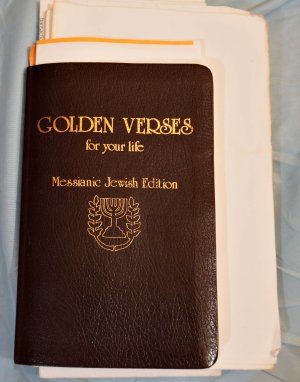DavP
Active member
Firstly... the debate about Bible translations today is NOT... simply about some "King James only" idea. That term is used by those who promote... the newer corrupt Bible versions.
The 1611 KJV Bible was NOT... the very first Bible translation. There were Bible translations prior to 1611, and Greek and Latin texts, and they also used the Majority Greek text, which amounts to 5,000+ Greek manuscripts. Erasmus in the 1500's put together the Textus Receptus from those various Greek and Latin texts, and the Textus Receptus became the basis for New Testament translations, up until British scholars Wescott and Hort in the 1880's submitted their own revised Greek text from Alexandrian manuscripts which became the basis of the newer modern Textual Criticism school, which is where the modern translations of today are derived. Erasmus was familiar with certain of the Alexandrian texts which modern Criticism uses, and Erasmus rejected use of them, deeming them less accurate because of so much disagreement between those texts.

 www.textusreceptusbibles.com
www.textusreceptusbibles.com
See the following about how Wescott and Hort substituted their new Greek text of 1881 over the 1500's Textus Receptus.
Another point to note, is that the New King James Version (NKJV) that Thomas Nelson publishers own, because they created it through a revision committee, also uses portions of the so-called 'Criticial text' from Wescott and Hort's new Greek translation from the Alexandrian Greek manuscripts. Thus the NKJV Bible New Testament part is NOT... a pure translation from the Textus Receptus based on the Traditional Greek texts which the 1611 KJV translators used. The Alexandrian texts are foreign to the original 1611 KJV. So in reality with the New King James Version, you are NOT getting a truly authentic KJV Bible.
The 1611 KJV Bible was NOT... the very first Bible translation. There were Bible translations prior to 1611, and Greek and Latin texts, and they also used the Majority Greek text, which amounts to 5,000+ Greek manuscripts. Erasmus in the 1500's put together the Textus Receptus from those various Greek and Latin texts, and the Textus Receptus became the basis for New Testament translations, up until British scholars Wescott and Hort in the 1880's submitted their own revised Greek text from Alexandrian manuscripts which became the basis of the newer modern Textual Criticism school, which is where the modern translations of today are derived. Erasmus was familiar with certain of the Alexandrian texts which modern Criticism uses, and Erasmus rejected use of them, deeming them less accurate because of so much disagreement between those texts.

Desiderius Erasmus Textus Receptus Bibles
The Real Story of Erasmus and the Textus Receptus
See the following about how Wescott and Hort substituted their new Greek text of 1881 over the 1500's Textus Receptus.
Another point to note, is that the New King James Version (NKJV) that Thomas Nelson publishers own, because they created it through a revision committee, also uses portions of the so-called 'Criticial text' from Wescott and Hort's new Greek translation from the Alexandrian Greek manuscripts. Thus the NKJV Bible New Testament part is NOT... a pure translation from the Textus Receptus based on the Traditional Greek texts which the 1611 KJV translators used. The Alexandrian texts are foreign to the original 1611 KJV. So in reality with the New King James Version, you are NOT getting a truly authentic KJV Bible.
Last edited:
